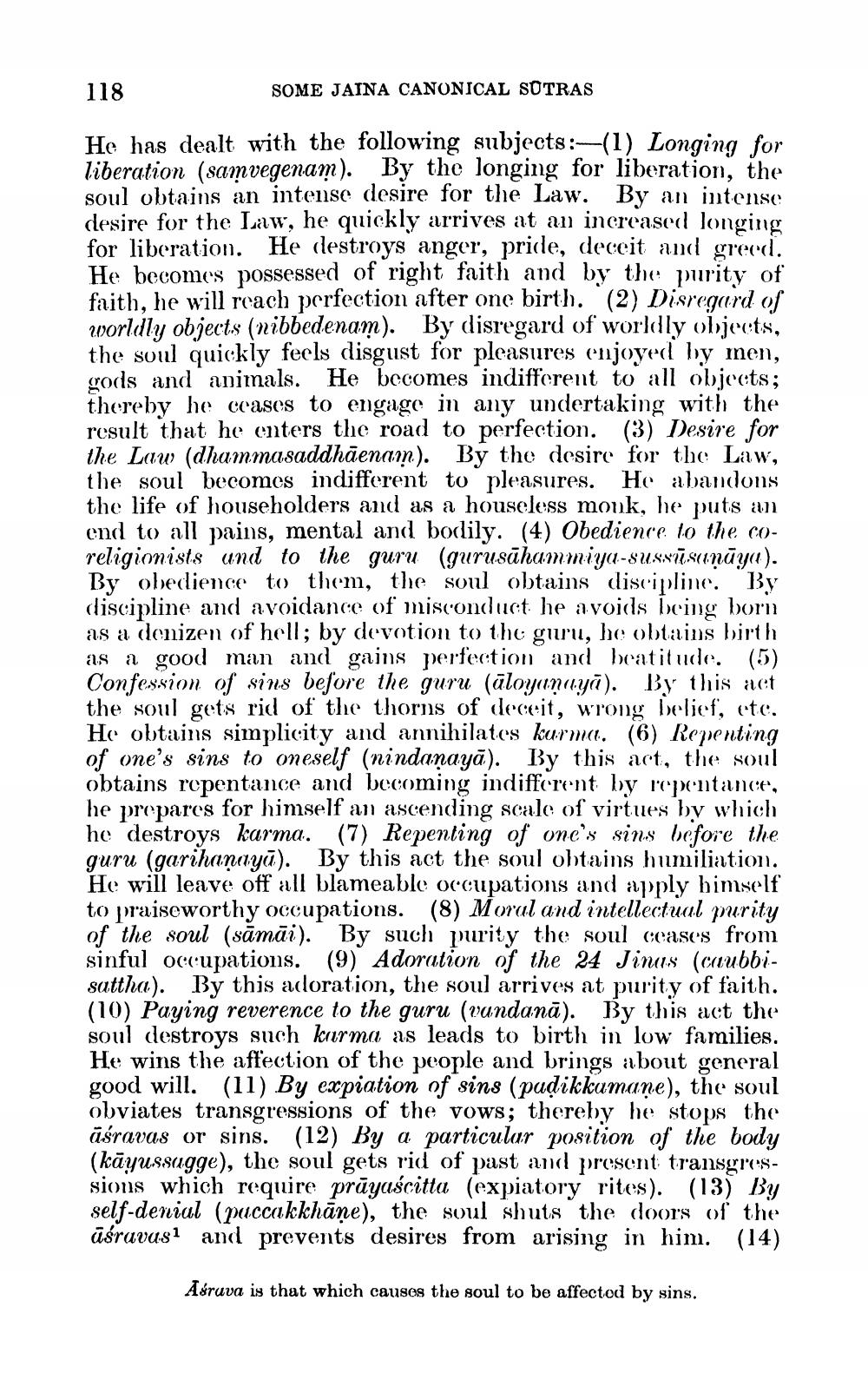________________
118
SOME JAINA CANONICAL SUTRAS
He has dealt with the following subjects:-(1) Longing for liberation (samvegenam). By the longing for liberation, the soul obtains an intense desire for the Law. By an intense desire for the Law, he quickly arrives at an increased longing for liberation. He destroys anger, pride, deceit and greed. He becomes possessed of right faith and by the purity of faith, he will reach perfection after one birth. (2) Disregard of worldly objects (nibbedenam). By disregard of worldly objects, the soul quickly feels disgust for pleasures enjoyed by men, gods and animals. He becomes indifferent to all objects; thereby he ceases to engage in any undertaking with the result that he enters the road to perfection. (3) Desire for the Law (dhammasaddhāenam). By the desire for the Law, the soul becomes indifferent to pleasures. He abandons the life of householders and as a houseless monk, he puts an end to all pains, mental and bodily. (4) Obedience to the coreligionists and to the guru (gurusāhammiya-sussūsaṇāya). By obedience to them, the soul obtains discipline. By discipline and avoidance of misconduct he avoids being born as a denizen of hell; by devotion to the guru, he obtains birth as a good man and gains perfection and beatitude. (5) Confession of sins before the guru (āloyaṇayā). By this act the soul gets rid of the thorns of deceit, wrong belief, etc. He obtains simplicity and annihilates karma. (6) Repenting of one's sins to oneself (nindanaya). By this act, the soul obtains repentance and becoming indifferent by repentance, he prepares for himself an ascending scale of virtues by which he destroys karma. (7) Repenting of one's sins before the guru (garihanaya). By this act the soul obtains humiliation. He will leave off all blameable occupations and apply himself to praiseworthy occupations. (8) Moral and intellectual purity of the soul (samai). By such purity the soul ceases from sinful occupations. (9) Adoration of the 24 Jinas (caubbisattha). By this adoration, the soul arrives at purity of faith. (10) Paying reverence to the guru (vandanā). By this act the soul destroys such karma as leads to birth in low families. He wins the affection of the people and brings about general good will. (11) By expiation of sins (padikkamane), the soul obviates transgressions of the vows; thereby he stops the āśravas or sins. (12) By a particular position of the body (kayussugge), the soul gets rid of past and present transgressions which require prayaścitta (expiatory rites). (13) By self-denial (paccakkhane), the soul shuts the doors of the asravas1 and prevents desires from arising in him. (14)
Asrava is that which causes the soul to be affected by sins.




